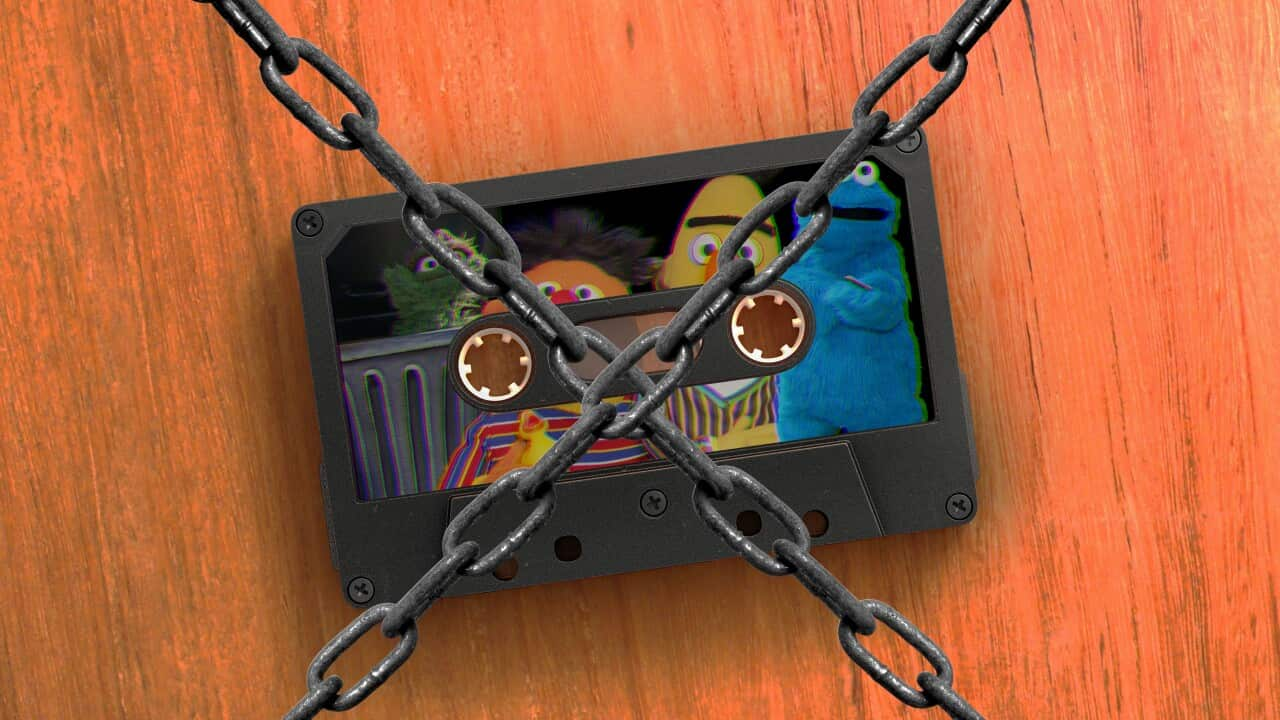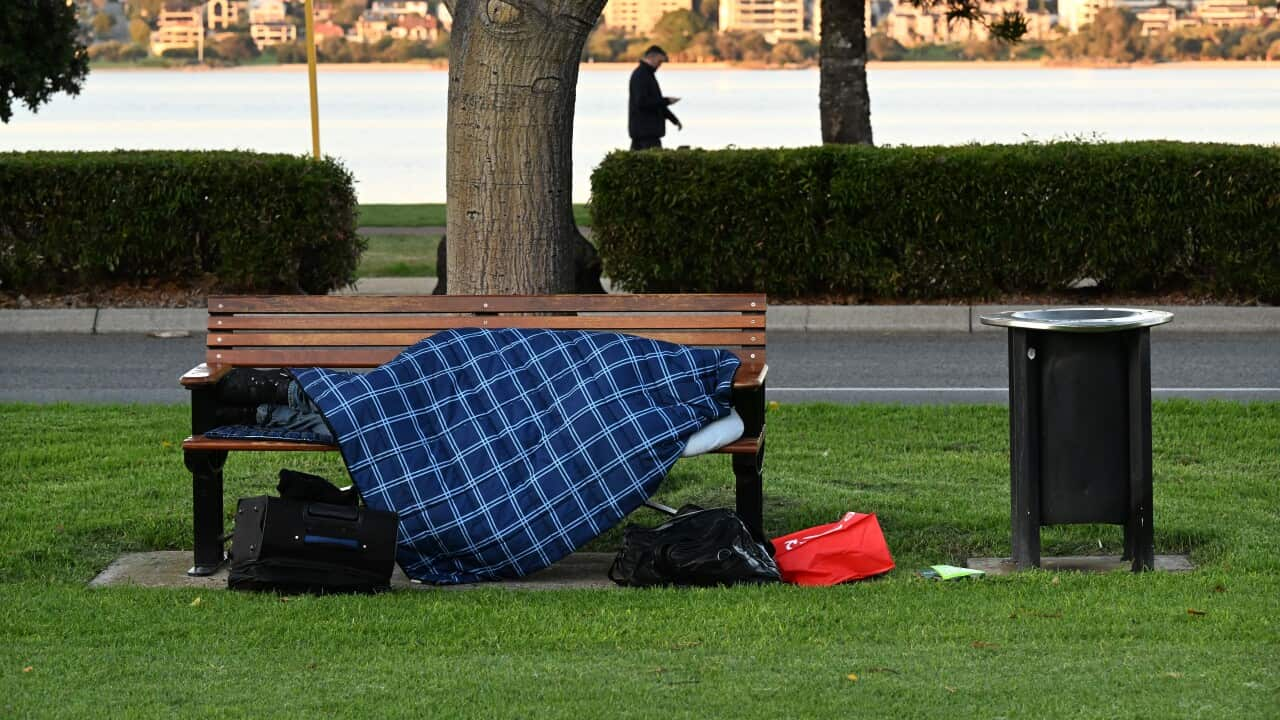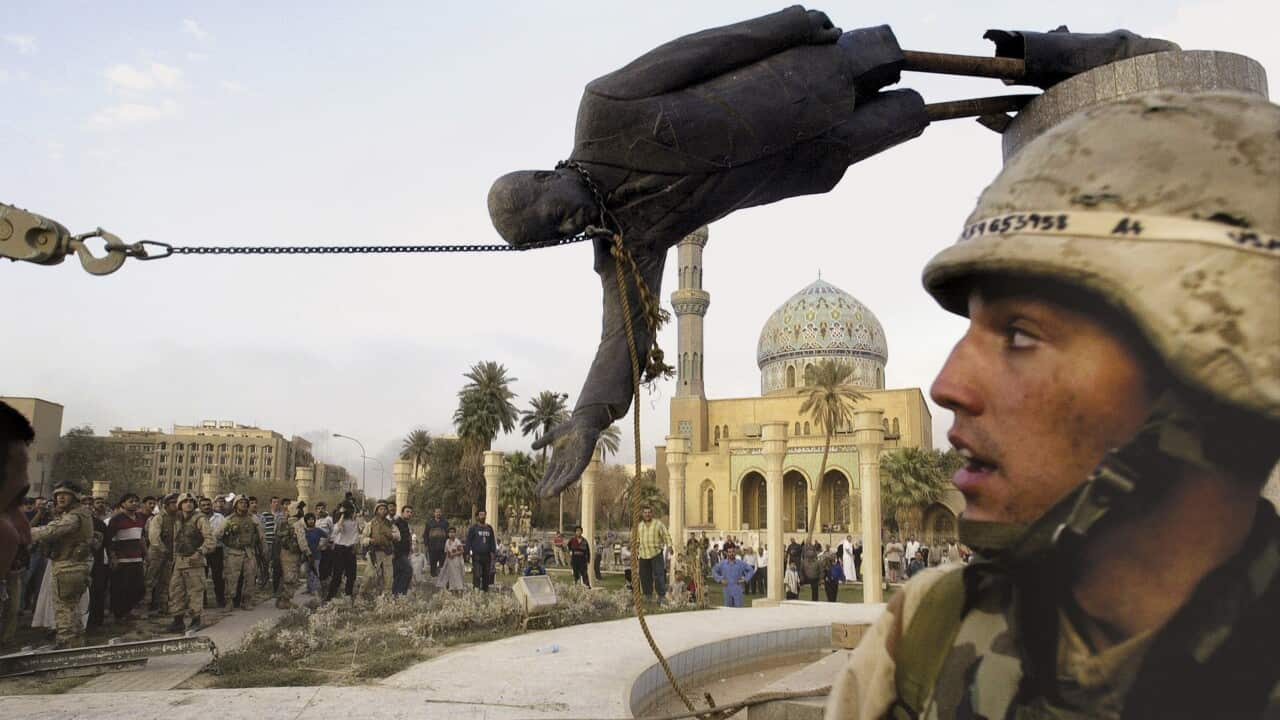A video circulating on social media in October allegedly shows a group of Hamas captives, held by Israeli forces, being forced to listen to a Hebrew children's song on loop for eight hours.
The captives, who were blindfolded and handcuffed, were played a song in Hebrew that sounds similar to the well-known children’s song Baby Shark. The song, whose name translates to A Sprinkler with a Purpose, is by Israeli children's singer Meni Tzukerl (stage name Meni Mamtera).

A screenshot from the video allegedly showing Hamas militants subjected to children's music for eight hours was uploaded to X on 15 October. Source: Twitter
This isn’t the first time children’s music has been used in this way.
A 2012 documentary from Qatari news agency Al Jazeera, Songs of War, reported that detainees in Guantanamo Bay detention camp, an American military prison in Cuba, were subjected to the Sesame Street theme song for long periods of time.
Guantanamo Bay prison was established in Cuba shortly after the September 11 2001 attacks in New York, Washington DC and Pennsylvania.
Since then, 780 people have been detained at Guantanamo Bay, many of them were held there on suspicion of being associated with al-Qaeda or the Taliban.

US military guards walk at the Camp Delta military-run prison, Guantanamo Bay, in 2006. Source: AP / Brennan Linsley/AP
The documentary reported the same practice happened in Bagram, a former US military prison in Afghanistan that held people accused of being part of the Taliban.
Often prisoners were exposed to the music in combination with being shackled in uncomfortable positions, and it was played at a high volume for hours to stop detainees from sleeping.

Former Guantanamo Bay prisoner Moazzam Begg was detained by the US military in Guantanamo Bay and Bagram from February 2002 to January 2005. Credit: David Levenson/Getty Images
In 2004, Amnesty International revealed the US military subjected prisoners in Abu Ghraib, a prison in Iraq, to music torture as well but it is unclear if children's music was used there.
Moazzam Begg, who was accused of being associated with al-Qaeda, was detained in Bagram and Guantanamo Bay.
He told Al Jazeera he was subjected to music torture, adding it was so loud that after just a few minutes he couldn’t hear himself think. After a long period of exposure, while being shackled, it put him in a vegetative state.

Bagram was run by the US military from 2001 until it left Afghanistan in August 2021. This picture was taken in 2013. Credit: S. Sabawoon/EPA
Begg was released from US custody without any charges, after being held for three years.
How is playing music considered torture?
Ben Saul, a law professor at the University of Sydney, is the UN Special Rapporteur on Human Rights and Counter-terrorism. He told The Feed that torture is defined as the “infliction of severe pain or suffering for a prohibited purpose like punishment or trying to get confessions from somebody”.
“Even if it’s not a super high volume, playing it [music] for prolonged periods on people who are detained can still be cruel and inhumane or degrading," he said.

Australian Ben Saul is the UN Special Rapporteur on Human Rights and Counter-terrorism.
"Sometimes these methods do make people talk. It doesn't necessarily make them give accurate information or reliable information, which is useful to law enforcement. It can make people just as often say whatever comes to mind or whatever interrogators want them to say just to make it stop."
The UN Convention against Torture was established in 1984 and has 83 signatories including Australia, Israel and the US.
Each signatory must take measures to prevent torture within their country and are forbidden from transporting people to countries where there is reason to believe they may be tortured.
In November, Bunbury council in Western Australia played The Wiggles song Hot Potato on loop for days in a bid to stop homeless people from sleeping on a stage.
One homeless man who was exposed to the music told the ABC the song was going around his head for two days.
“It drives us nuts, we’re getting sick of it,” he said.

Members of The Wiggles told the ABC they were "deeply disappointed" to hear their music was used to deter homeless people. Credit: Mark Metcalfe/Getty Images
Saul told The Feed these occasions don’t amount to torture per se as homeless people are not forced to listen to the music and are able to leave the scene.
“It's annoying and frustrating and lots of other things.
“But it's the fact that you’re under the physical control of another person in detention that makes what you're subjected to then quite a different experience”.
Kyli Hedrick is a psychologist and researcher at the University of Melbourne. She told The Feed that research into musical torture has shown that the genre of music can have an impact.

Kyli Hedrick told The Feed that repeated music with no control over the volume or length of time can make people unable to hear themselves think. Source: Supplied
“It's a way of trivializing, or minimizing what would obviously be a really distressing, frightening situation to be a prisoner and detained in that way.
“If you're perhaps blindfolded or if you are in solitary confinement, and you’re not aware of your surroundings, you're going to be very, very fearful.
“And then to have this kind of lighthearted music playing that's causing some dissonance, that's contradicting your experience and probably making all of your fear systems alarm even further.”
Why is music used in torture?
Hedrick told The Feed that when someone is played music repeatedly with no control over the volume or the amount of time it has the potential to cause “great psychological pain”.
“It can cause someone to become quite disoriented. And it has this effect of making someone really unable to process their internal information or their thoughts,” she said.
“It causes really a state of fear, of anxiety, of panic.”
The Al Jazeera documentary traces the history of using music as a form of torture back to the Korean War in the early 1950s when it was used by the Chinese and North Korean armies.
From there, American scientists began to study the impacts of exposing people to music for days on end, causing sleep deprivation.
They found it puts the prisoner into a weakened, vulnerable state, making them easier to interrogate.
Saul said that during the war on terror, the US-led international military campaign that followed the 9/11 terror attacks there was a line of thinking that “if it’s not physical, it’s not really torture”.
“That shows a complete misunderstanding of what torture is because the definition of torture includes severe pain or suffering, physical or mental.
“[Music torture] can also be a method of evading detection if people don't need obvious physical medical treatment.
Speaking to the UN General Assembly in 2017 Mark Fallon, a former counterterror official for the United States government, said information received from torturing people was often ineffective.
What do children's song writers think of using children’s music for torture?
Amanda Niland is senior lecturer in early childhood education at the University of Sydney. She has also written a number of children's songs.
She told The Feed when she writes music she tries to make the songs easily singable.
“I tend to have the sort of repetitive structure that's fairly common in children's songs.

Amanda Niland has been teaching early childhood education at universities in Australia for nearly two decades. Source: Supplied
“Children's music gets stuck in your head so easily because [of] its singability, it's the repetitive structures of both the rhythm and the lyrics. It's things like that,” she said.
Niland told The Feed she thought it was “sinister and manipulative” to use children's music in the context of moving people on and for torture.
“It could connect with childhood memories for some people, depending on their ages, and then it would twist them.
“We don't really see children as having the same rights and respect as adults.
“So we can use things that are meant for children in that way, and also we can play around with people's connections to their own childhood”.
In a statement to the ABC, The Wiggles responded to the Bunbury Council’s use of their song to deter homeless people saying:
"The Wiggles' music is created to bring joy and happiness to children and families around the world.
"We are deeply disappointed to hear that it is being used in any other way."












